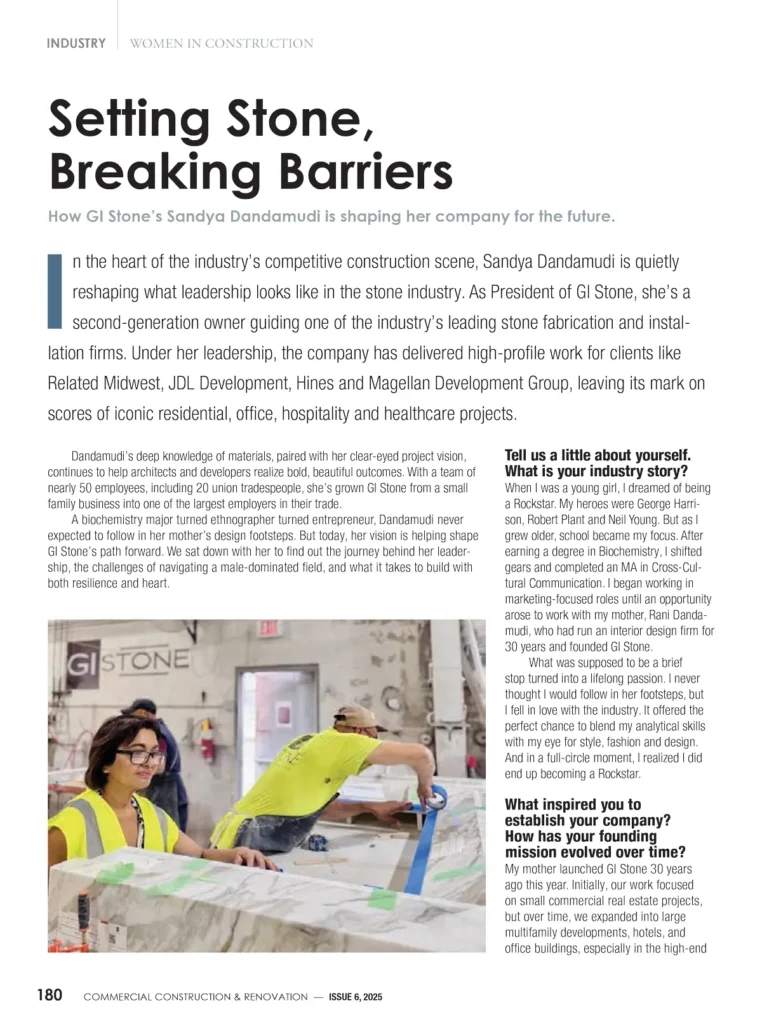Construction delays are inevitable, they always happen and they have such effects as; they prolong the time of construction, they also cause additional costs to be incurred, and they also frustrate all the parties involved. These delay costs can stem from many causes that include wrong scheduling, unfavorable climate conditions, lack of manpower, or any emergent occurrences. To keep construction delay under control, it is necessary to embrace the causes hence displaying efficiency in planning and acting to avoid their occurrence. This article helps in identifying the sources of construction delays, measures to control them, and the construction firms’ involvement in controlling the same.
Introduction:
Picture this: You are expecting your dream home or business premises to be constructed and you wait and wait only to find that the builders are taking their sweet time into ‘delivering’ the premises. It grows into a Sour Patch where the frustration accumulates, and with that – the expenses grow disproportionately to the actual value and benefit received from the project, thus turning an exciting project into a stressful one. Regrettably, any development with an architectural touch is marred with dramatic delays in construction. But what if you were able to control them or some of these contingencies better or even avoid them in the first place?
In this article, we will discuss the main reasons as to why construction projects are delayed and how you can avoid them. We will also be looking at how construction firms can help in the management of such delays, specifically the services that they provide in such situations. No matter if you are the project owner, manager or contractor, knowing how to deal with delays is crucial to construction success.
Causes of Construction Delays:
There are many causes of construction delays; these may be external factors or even poor organisation of the construction project. Let’s break down the key causes:
Poor Planning and Scheduling:
Lack of planning is one major cause of construction delays. An inadequate planning process in the construction project causes delays. Such factors include a vague work description, unrealistic time frame, or incorrect distribution of resources that greatly distort the timeline. For instance, if key materials can’t be ordered on time or if the labour isn’t properly scheduled, bottlenecks may happen. This is mostly caused by poor planning whereby some teams find themselves struggling to solve some problems that could have been easily anticipated or avoided.
Weather Conditions:
Weather is probably the most compromised factor in construction projects. Rain, heat or sunshine can slow down the working progress, sometimes making it impossible, thus many delays are likely to be expected. As much as modern technology helps in predicting the forms of weather, one cannot rule out the chances of changes in weather which are unpredictable. Maintenance projects that require excavation or any work that is to be carried out out-door are the most likely to be affected by such a setback.
Labour Shortages:
Frequently, construction projects involve highly active personnel and any incompleteness in this aspect can slow down or even stall a construction project. This could be as a result of several reasons such as; high demands for the same in construction sites, inadequate planning of the people in the construction industry or frequent strikes. Ideally, when there are few workers, or when those who are available do not have the required skills, the time-line is very likely to be an issue.
Supply Chain Issues:
This process implies timely availability of construction material as this is important in keeping the project schedules on track. Any late arrival of material could be attributed to either logistical issues, production hold-ups or issues with the vendor and the impact it has can be disastrous in a way that triggers a consequential delay on everything below that point. When one of the large orders of material is out of stock, there are several levels of construction where building work stops.
Design Changes or Scope Creep:
The design of the project as well as its scope may change as the project is being implemented. Regardless whether changes in the requirements are made by the client based on certain upgrades, problems that come across along the way, or upon compliance to existing legislation, these can cause significant disruptions to the planned schedule. The expansion of a project’s scope is a major problem that can be disastrous in the event that it is not adequately controlled.
Regulatory or Permitting Delays:
Any construction project of course needs to conform to the laws of a particular region which includes permits and inspections. Getting these permits may sometimes take a lot of time hence a major cause of delay. Also, failure in inspections may necessitate a call back for rework which adds to more time in the schedule.
Financial Issues:
What most project managers are aware of is that funding can stall or completely come to a halt at some point. Some of the contractors experience poor budgeting, unpredicted expenditures, or delayed revenue receipt, which compels them to stop constructing structures until financial matters are sorted.
Effective Solutions to Manage Construction Delays
Overall, although one may get the feeling that few things can always be on time, many of these are manageable or even preventable. Here’s how:
Thorough Pre-Planning:
The plan plays a central role as to the success of any project especially in the construction of buildings. Create a specific time frame of the project and assign necessary resources, and consider possible problems. Make sure everyone knows when things are due, what has to be produced, and who is going to do what.
Use of Project Management Software:
Software tools including Primavera P6, Microsoft Project, and Procore facilitate the monitoring of timelines and their adjustments in the projects. These tools help a manager to discern a bottleneck before it turns into a major problem, thanks to some of the relevant interventions. They also enable documentation of the achievement of laid down goals and create a platform where stakeholders can share information.
Weather Contingency Plans:
As much as you cannot choose the climate, you can schedule for it. Always leave room for various key activities in your project to be affected by weather so that you include provisions in your work plan. Where possible, using materials and techniques that will not allow rain to interrupt work and in the same way work in bad weather.
Early Procurement:
One of the reasons that cause delay when it comes to construction can be set back by early procurement of materials. Once you have put down the designs you should order materials before the designs are complete. To avoid shortage of material, one should work with reliable suppliers and have other options in case the primary supplier lets the project go down.
Strong Communication with Stakeholders:
There is nothing more important than communication in any project and this is the area that must be effectively managed. Communicate with all the stakeholders so that they are aware of the status of the project, possibilities of the delays, or changes to the project duration. In this case, it is wise to mitigate such problems at their infancy so that they do not aggravate into a worse state.
Flexible Scheduling and Resource Allocation:
Lack of fixed time frames for the tasks and the inability to predict how many resources it will be necessary to spend should be considered as important tendencies. If there are delays then reorganise the resources and no team should feel that they are sitting around. It may be useful to redesign a certain labour type, shifting it to the type where workers can solve problems concurrently.
Regular Inspections and Quality Control:
If quality control is conducted often, then time wasting from rework or failed inspections will be minimised. Just go over periodically, and make some check ups occasionally to look for areas where probably things are not done as per the code before they transform to major issues.
How Construction Companies Manage Delays:
Construction companies offer a range of services to help mitigate and manage delays. These include:
Project Planning and Scheduling:
Construction companies provide one of the most important services which is detailed planning of the work to be done. They prepare a fully effective timetable in which holdings analyse possible risk, methods of resource utilisation and project time, thus giving less probability of hold up resulting from poor planning.
Risk Managment:
Professional construction companies usually have several individuals or a whole department in charge of managing risk. They assess possible delay causing factors and come up with measures that may include preparation of preliminary action plans in the event of a disaster such as acts of terrorism, natural calamities or unavailability of supplies.
Vendor and Supply Chain Management:
Construction companies normally ought to be in a position to secure their suppliers hence, the consistent supply of the materials. They also manage procurement timelines with the hope of minimising some disruptions as a result of delayed deliveries.
Permitting and Regulatory Compliance:
Tackling permits and regulatory requirements problems and concerns can be a challenge. This is usually done by construction companies which work on behalf of the clients, to make sure all the permits have been acquired and projects are in compliance with the law.
Technology Integration:
Most of the construction firms have adopted and integrated the usage of precise software and technology in managing the construction process. This means that its rate of progress can be closely checked and adjustments made when necessary, this prevents delays which are long from happening.
Workforce Management:
The lack of skilled workforce would cause several problems in construction companies and is avoided by developing capacity. They also have the responsibility of allocating shift patterns so that the correct workers are available where and when they are needed, thus avoiding congestion in workers time.
Conclusion:
Therefore, construction delays are usually unpleasant, time consuming and can cause a lot of disturbance, but they are conquerable. Thus, realizing the main causes of delay and introducing required measures for its control you will be able to provide appropriate management of your project. Service providers such as construction companies provide crucial services in order to avoid time lapses including planning, timeline, precautions and legal issues to adhere to.
That is why we need to learn how to avoid the certain delays in the process of working, so that your project would be finished on time and with the proper costs. Whether you’re a project owner or a construction professional, being proactive, flexible, and communicative is key to successful project completion.


































